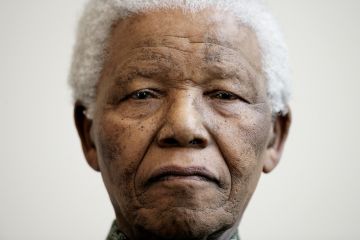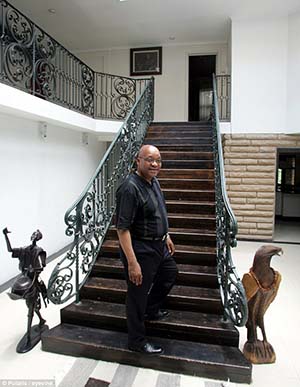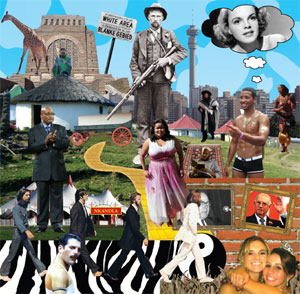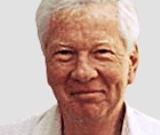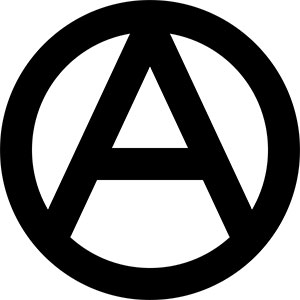Future of White South Africans?
June 16, 2013 Leave a comment
STOCKHOLM, Sweden – As former South Africa President Nelson Mandela remains hospitalized and reportedly in serious condition, questions about the future of increasingly marginalized European-descent South Africans are edging into international headlines.
Recent developments on multiple fronts are striking fear into the hearts of many Afrikaners, descendants of primarily northern Europeans who began arriving in South Africa three to four centuries ago.
From legally mandated race-based economic discrimination against whites to the thousands of farm murders targeting Boers across the nation, the problems are only getting worse. Poverty and unrest are spreading quickly as well.
Genocide
The world’s most prominent expert on genocide, President Dr. Gregory Stanton of Genocide Watch, already warned last year that the Afrikaner population could be on the verge of a government-linked extermination campaign.
During a fact-finding mission to South Africa, Stanton, who helped fight against apartheid, found evidence implicating the ruling African National Congress (ANC)-South African Communist Party (SACP) government in a plot to eradicate whites as part of a scheme to foist Marxist tyranny on the nation.
In fact, after the investigation, WND reported that Genocide Watch raised its alert level on South Africa to stage 6 out of 8 – the planning and preparation phase of the extermination process.
“There is thus strong circumstantial evidence of government support for the campaign of forced displacement and atrocities against white farmers and their families,” Stanton said in the Genocide Watch report, adding that the end goal was communist tyranny. “There is direct evidence of [South African] government incitement to genocide.”
As WND also reported, South African President Jacob Zuma routinely sings racist songs calling for the murder of whites.
Former ANC Youth Leader Julius Malema, a virulently racist self-styled communist with a significant following, is now forming a new political party to “fight white males,” South African media reported this week.
Malema’s alliance will also seek to expropriate white-owned property without compensation, nationalize key industries and force whites to “behave in a manner that says they regret their conduct.”
Economic discrimination
Meanwhile, on the economic front, authorities are cracking down on the white minority as well.
Through a controversial program known as Black Economic Empowerment (BEE), the government has instituted a race-based employment regime specifically targeting whites.
Critics, even among prominent blacks, say the results of BEE have been disastrous.
Among the myriad problems associated with the race-based employment system: mass emigration of skilled workers contributing to “brain drain,” soaring poverty rates among whites, chaos for businesses and more.
Hundreds of thousands of economically excluded Afrikaners now live in squalid squatter camps throughout South Africa without so much as running water or electricity.
Hundreds of thousands more have fled to Western nations seeking a better life.
“The advent of black rule has been devastating for whole groups of whites, even highly educated ones,” Dan Roodt of the Pro-Afrikaans Action Group, PRAAG, told WND.
Among those groups, he said, are European-descent South Africans from virtually every economic field – especially people with cultural skills, bank workers, and government employees.
“Some of these people have definitely ended up on skid row,” Roodt added, pointing to the racist affirmative action policies as the cause.
“I definitely blame the system of reverse discrimination or anti-white racism for white poverty,” the author and prominent activist continued.
“Almost all whites are educated, literate and generally hard-working, so they should not be poor,” he said. “The system makes them poor by denying them opportunities and expecting whites to be superhuman and to make money out of thin air.”
Roodt explained that once people are excluded from the economic life of a country, they “spiral downwards and lose everything,” making it increasingly difficult to re-enter society in the future.
“It makes me both sad and very angry to witness these scenes of whites living in third-world squalor while we have all the skills to employ them, but the system prevents us from doing so,” he added.
The corruption is out of control, too, Roodt explained, saying it was contributing to the growing economic problems facing the nation.
“South Africa’s ANC government is so corrupt that it is sometimes hard to distinguish between the ruling party and organized crime,” he said.
Media attention
Since the fall of apartheid in 1994 – when the Western establishment and Soviet powers finally succeeded in forcing the anti-communist, white-dominated government to relinquish power – the international press, which played a key role in the process, has been largely silent.
After almost two decades of ignoring the issues, however, the world media is starting to take notice – albeit slowly.
The British state-funded BBC, for example, featured a recent article headlined “Do white people have a future in South Africa?”
“The answer, as with so many similar existential questions, is ‘Yes – but…’,” reported BBC News World Affairs Editor John Simpson after exploring the problems.
While acknowledging that whites still own much of the nation’s wealth, Simpson concluded that only certain segments of the European minority have a genuine future in South Africa.
“Working-class white people, most of them Afrikaans-speakers, are going through an intense crisis,” the BBC noted.
“Those who fit in and succeed will certainly have a future,” the report stated. “As for the rest, there are no guarantees whatsoever.”
ANC reaction
A spokesman for the ANC could not be reached for comment by WND despite repeated attempts.
However, even though many experts said the BBC article barely scratched the surface, the reaction from the ruling ANC was to demonize the reporter and his employer, saying the BBC was suffering from an “apartheid hangover.”
“South Africa has never been in a situation where whites have been singled out and persecuted,” ANC spokesperson Keith Khoza was quoted as saying in South African media reports.
He also pointed out that crime and poverty affect all South Africans, which is true, though few dispute the fact that white farmers have been victimized in numbers all out of proportion even when compared with the rest of South Africa’s crime-ridden society.
“The BBC is living in their own world with their racist tendencies where they wish to undermine the government of South Africa because it is largely a black government,” the spokesman claimed.
“This isn’t just an attack on the government of South Africa and the ANC, it’s an attack on South Africa as a whole,” he concluded.
Farm murders
In a development that was considered surprising by analysts and South African exiles who spoke with WND, the BBC also touched on the ongoing farm murders that have claimed as many as 10 percent of the nation’s European-descent farmers.
“Virtually every week the press here report the murders of white farmers, though you will not hear much about it in the media outside South Africa,” the report said. “In South Africa you are twice as likely to be murdered if you are a white farmer than if you are a police officer – and the police here have a particularly dangerous life. The killings of farmers are often particularly brutal.”
As WND also reported last year, authorities have done little about the problem other than try to conceal it from the world.
“The government has so far been unwilling to make solving and preventing these murders a priority,” the BBC report continued.
Indeed, even keeping an accurate count has been made all-but impossible by the ANC-SACP government, which regularly downplays the vicious farm murders and even stopped tracking useful statistics that would reveal the true scope of the problem.
Many of the victims, often children and babies, are brutally tortured before being killed.
The horrors have included drowning infants in boiling water, raping children, disemboweling whole families, dragging victims for miles behind a vehicle and other unimaginable atrocities.
Experts say the goal is to terrorize and eventually eliminate white farmers, with Genocide Watch’s Stanton and numerous other convinced that the ultimate aim is to establish communist tyranny.
With a population of around 5 million, whites today make up less than 10 percent of the population, down from above 20 percent a century ago.
Since the fall of apartheid in 1994, an estimated half-a-million have emigrated. Countless more would go if they could.
Land redistribution
In a separate BBC report, the state-funded news organization also documented the results of the South African government’s highly controversial land-redistribution policies.
The government admitted that 90 percent of farms it had “redistributed” from whites who farmed the land for generations to blacks with little knowledge of farming – almost 25,000 square miles of land so far – are now “failing.”
“The farms – which were active accruing revenue for the state – were handed over to people, and more than 90 percent of those are not functional,” Land Reform Minister Gugile Nkwinti conceded.
“They are not productive, and therefore the state loses the revenue,” Nkwinti continued. “We cannot afford to go on like that… No country can afford that.”
While the government plan was to redistribute a full third of white-owned land to blacks by 2014, there are now discussions about potentially trying to return some of the farms to their former owners in a bid to keep the tax revenues flowing.
In neighboring Zimbabwe, formerly known as Rhodesia, Marxist dictator and ANC ally Robert Mugabe violently expelled much of the population of white farmers. The land was then largely “redistributed” to cronies who knew nothing about farming.
Before that, the country was known as the “breadbasket” of Africa thanks to its massive agricultural export industry.
Today, Zimbabweans are starving as the nation increasingly depends on international food aid for survival.
Future in South Africa
Analysts on all sides of the issue seem to agree on at least one point: The eventual death of Mandela, 94, could make long-simmering problems explode to the forefront once again, potentially with deadly consequences.
The general public perception of Mandela, which tends to ignore or minimize his well-documented past involvement in terrorism and the international communist movement, considers the former president and ANC leader as something of a hero for his key role in the Western- and Soviet-backed takedown of apartheid.
When he dies, more than a few analysts say full-blown chaos could be unleashed in South Africa. One source with knowledge of the matter told WND that martial law may even be declared.
If the plight of significant segments of the Afrikaner population is bad now, however, the death of Mandela could mark a turning point toward total disaster – at least if current trends continue and the world remains silent.
What to do, though, remains unclear.
Afrikaners within South Africa and others exiled around the world have widely divergent views as to what route would be best for the European-descent minority.
Options
A few exiles, citizens and experts who spoke with WND suggested that there was no longer a viable future for Afrikaners in South Africa.
Along with advocates like Stanton of Genocide Watch, they say it is time for the United States and Europe to start urgently accepting vulnerable whites as refugees.
Others say a war for self-defense might be the only real option if the situation gets out of control – a conflict that would undoubtedly have disastrous consequences for all South Africans, but especially the white minority.
Plenty of South Africans, especially in cities like Cape Town, still do not see what analysts say are storm clouds building on the horizon. Most would simply like to live in peace.
Incompatible cultures
For an increasingly significant segment of the population, it is becoming clearer that today’s South Africa is simply not sustainable in the long term.
“South Africa is a colonial construct, currently an incompatible, unsustainable mix,” International Afrikaner Society President Hannes Louw told WND.
The major fault-line in what is dubbed the “Rainbow nation,” Louw said, is between Afrikaners – descendants of Europeans, Khoi Africans as well as former slaves from Africa, Indonesia, and India – and Bantu, descendants of migrant groups from central and eastern Africa.
“The time has come to face the facts: oil and water does not mix,” he continued.
“The same principles that applied to other countries, like North and South Sudan, also applies to South Africa – the country needs to be divided in two countries, a Western South Africa where Afrikaners are the majority and an Eastern South Africa where Bantus are the majority,” Louw said.
“Despite the current regime’s efforts to culturally colonize Western South Africa, with racist Black Economic Empowerment and busing in homeless Xhosa, Afrikaners are still the majority in in this region and that’s the saving grace,” he continued.
“The time has come for Afrikaners living in Western South Africa to democratically take back their inheritance, the land that was paid for with the lives of our ancestors, fertilized with their blood and watered with their tears,” Louw added. “But as Christians, let us not forget to do so responsibly in line with Biblical principles, international law and the South African constitution.”
Afrikaner homeland
PRAAG leader Roodt, meanwhile, says the European minority in South Africa must achieve self-determination and self-governance if the Afrikaner people and culture are going to survive and thrive.
“The sooner whites realize that the only way out is an ethnic state or Israel of their own, the better,” he told WND. “I can only see the system deteriorating progressively, with anti-white discrimination becoming so pervasive and pernicious that no one will be able to survive.”
Experts say the idea of an independent homeland for Afrikaners is a non-starter with the South African ANC-SACP government, Western powers, and the United Nations.
Still, among certain segments of the white minority in South Africa, the idea is alluring and will likely become increasingly appealing going forward.
Survival
Henri Le Riche, a patriotic Afrikaner activist in exile in Australia who runs a website focused on many of issues affecting South Africa, told WND that there could still be a bright future for his people in their homeland.
“The Afrikaner is a small minority, and unlike the U.S. don’t have numbers in the population which will help in long term survival,” he explained.
That does not mean, though, that anyone should lose hope. There is potential, Le Riche continued.
“Whites do have a future in South Africa, but only if they embrace their own culture and stop feeling shame or embarrassed,” he said. “This, of course, is not easy in the current atmosphere, as morale is at its lowest due to affirmative action favoring black people, and discriminating against skilled white people.”
Revival and the West
However, Le Riche sees the problem as something that goes beyond his own nation and really affects the West more broadly – particularly Americans, who he says have a lot in common with the Afrikaner.
There are two primary forces holding Western culture together, Le Riche said: family and religion.
“This is the focus point of Marxism in to break down these two pillars of our society, with the final goal to break down Western culture,” he explained. “We can see the effects of this Marxist strategy all over the world with moral decay in society and the breakup of families.”
Quoting an American, Le Riche said that the West may have defeated Communism during the Cold War, but Marxism is still winning. Communism, he added, is the structured form of Marxism – government.
Afrikaners and Americans
Le Riche offered two suggested ways for Afrikaners as a people to survive, which he believes apply to patriotic Americans as well.
For one, “do not feel guilty or shy about who or what you are,” he said.
“As humans we have good and bad points, and that goes for every nation on this earth’s history. Marxism focus on breaking down identity by form of making you feel ashamed of who you are, and your history.”
Secondly, Le Riche added, Afrikaners should reach out to Americans, and vice versa.
“As Afrikaners and Americans we have a very similar history spanning over a period of nearly 400 years on two different continents,” he said. “The nearest you will get to an American is an Afrikaner. No other nation comes as close.”
“Sadly, many Americans don’t even know the Afrikaner,” Le Riche continued. “Americans need to help Afrikaners selling themselves, selling their identity. Fight the goal of Marxism.”
He says Americans should look beyond “Fortress America” and build new friendships and re-connect with old allies like the Afrikaners.
“When it comes to our way of life and survival of our values in the long run, we need friends, many friends, and friendships, like relationships, need work,” the exiled activist and commentator said. “Let’s start building those relationships.”
“Our biggest enemy is complacency,” Le Riche concluded.
